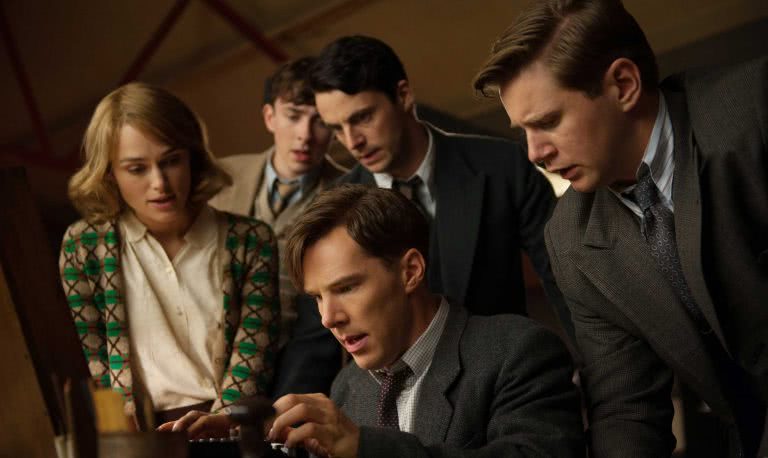When they announce the Oscar nominees in January next year, you can bet your bottom dollar you’ll see The Imitation Game on the list. Indeed, as a worthy historical drama about a brilliant but troubled mathematician who helped turn the tide of WWII only to be persecuted on account of his homosexuality, you could probably make the argument that it’s one of the most Oscar-baity movies ever made.
That’s not to say the film is bad, necessarily. As a matter of fact, it’s actually quite good, if very, very conventional. Even the casting of Benedict Cumberbatch seems like the safest choice possible: the man who made a name for himself as this generation’s quintessential Sherlock Holmes could play a socially oblivious genius in his sleep.
In the case of The Imitation Game, the genius in question is Alan Turing, who at the outset of WWII is recruited by MI6 to help crack Nazi code. An eccentric personality, Turing initially draws the ire of his colleagues, but slowly proves himself an essential part of the unit. Modern estimations suggest that the work done by Turing and his colleagues, played here by the likes of Matthew Goode and Keira Knightley, likely reduced the length of the war by years.
Making his English-language debut, Norwegian director Morten Tyldum (Headhunters) keeps things moving at a lively pace, the film’s inherently compelling subject matter helping to make up for the predictable manner in which it unfolds. Flashbacks to Turing’s tortured childhood at boarding school make clear the adversity he faced his entire life, but scenes set after the war skirt around the worst of Turing’s fate.
Obviousness of the casting aside, Cumberbatch is extraordinarily good in the film, bringing an emotional depth to the role of Turing that in lesser hands might have been smothered by self-conscious tics. His performance elevates the film above standard biopic fare, and is a big enough reason to buy a ticket.
3/5 stars
The Imitation Gameopens in cinemas on Thursday January 1.

































